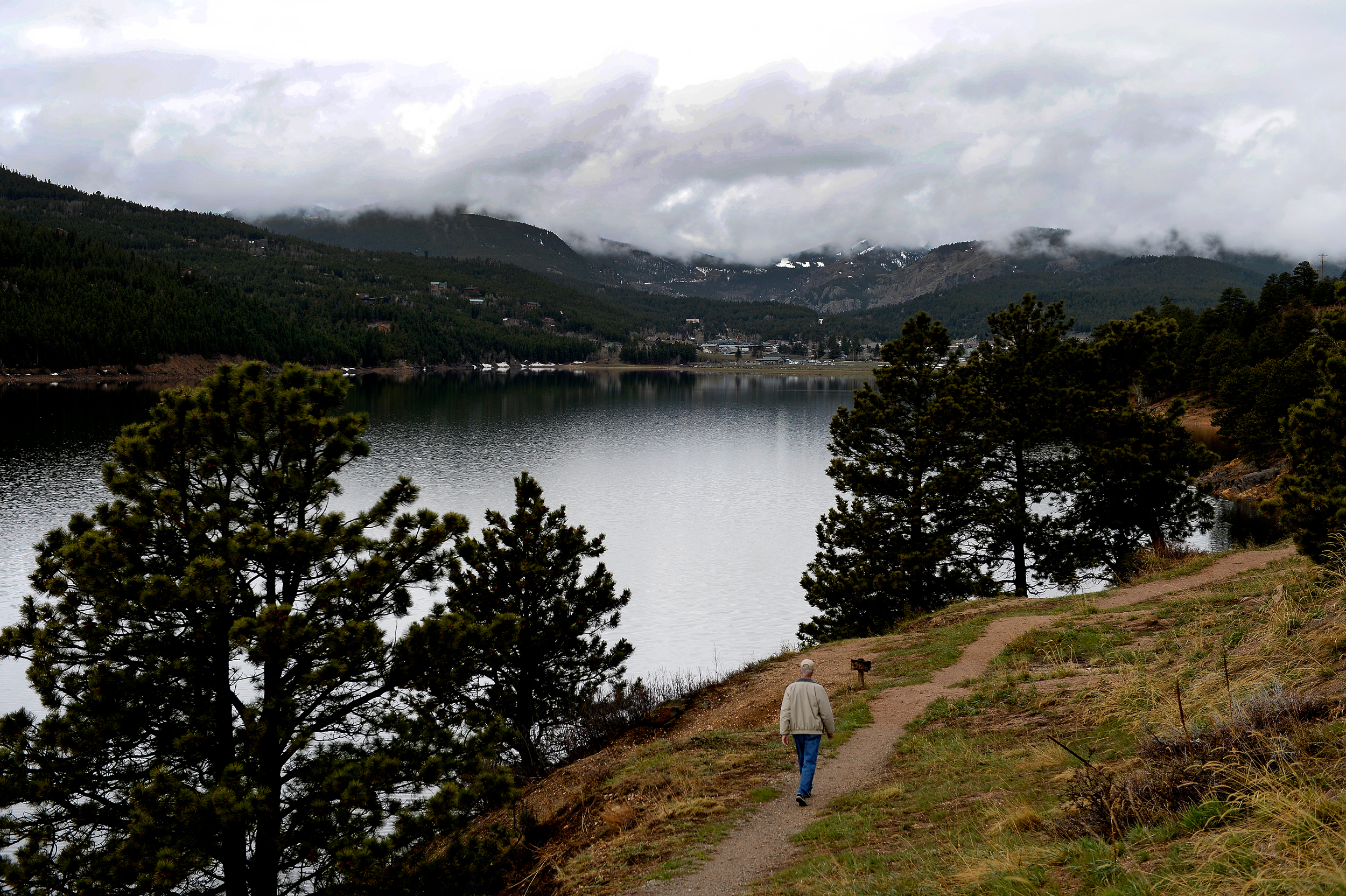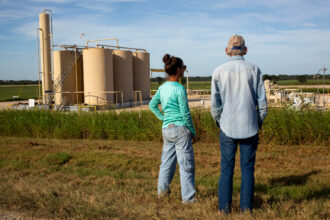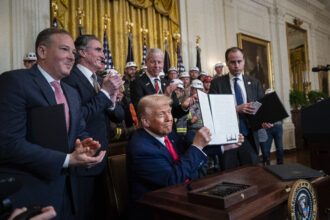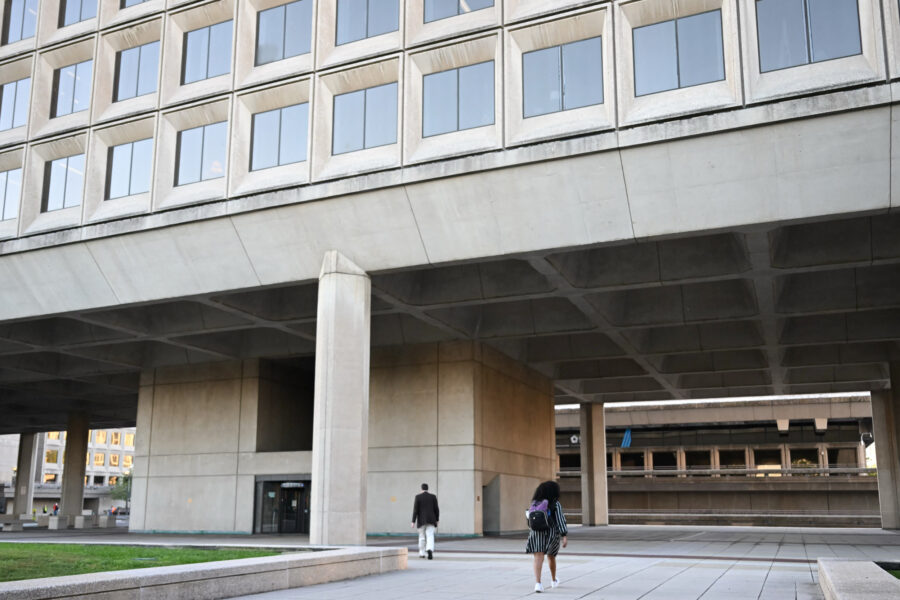This story has been updated.
The ink is barely dry on a Colorado town’s first rights of nature resolutions, yet a motion to repeal them passed unanimously Tuesday night.
The resolutions, adopted in Nederland to protect a section of Boulder Creek that runs through the town, were inspired by the global “rights of nature movement,” which aims to secure recognition that ecosystems and individual species have the legal right to exist and regenerate.
The Nederland town board approved one of the rights of nature resolutions earlier this year, appointing two legal guardians to act on behalf of Boulder Creek. The other, a 2021 “Rights of Nature for Boulder Creek” declaration, recognized that, within town limits, the creek and its watershed are “living” entities possessing “fundamental and inalienable rights,” such as to exist, to be restored and to provide an adequate habitat to native wildlife.
Neither resolution was legally binding, and the guardians’ appointed for Boulder Creek were limited to preparing annual reports about the ecosystems’ health and making recommendations on improving water quality, wildlife habitats and wetlands protection.
While roughly 30 other countries have rights of nature laws or court rulings on the books, no court in the United States has ever recognized the legal doctrine, despite numerous efforts by towns, cities and counties to adopt rights of nature measures.
Still, the symbolic power of those local rights of nature ordinances and resolutions can be significant—as in Nederland.
The move to repeal Nederland’s dual resolutions by Nederland’s mayor, Billy Giblin, came as the town advances an application with the state to construct a dam and reservoir on Middle Boulder Creek. The reservoir would provide Nederland with an upstream water supply. Currently, the town relies on storing its water in the City of Boulder’s Barker Meadow Reservoir downstream.
The current controversy of Nederland’s rights of nature resolution erupted last month, when Save the World’s Rivers, a Colorado-based nonprofit, filed opposition to Nederland’s application, claiming that it was deficient and asking that the town be required to carry out an engineering plan and provide a cost estimate for the dam, among other things.
“Dams kill rivers, they drain rivers and this dam would do that to Boulder Creek,” said Gary Wockner, executive director and founder of Save the World’s Rivers.
Wockner said he believes that the move to repeal Nederland’s rights of nature resolutions stems from his involvement in advocating for those resolutions’ passage—he was one of the lead advocates behind the resolutions.
He said that his role at Save the World’s Rivers is distinct from his rights of nature advocacy and that he has fought dozens of dam projects in the southwest United States for over 20 years.
“To respond to our opposition to the Nederland dam in this case by targeting the rights of nature is just punitive,” Wockner said.
Giblin, the Nederland mayor, said it is “crystal clear” that the rights of nature resolutions are not legally binding and that the reason he sought to repeal the resolutions is because he, along with the town’s water lawyers and administration, are concerned “that the entity that brought us the rights of nature resolution” is opposing four water storage rights application permits across the state, including Nederland’s. One of Save the World’s Rivers’ opposition materials references Nederland’s rights of nature resolution.
“The challenge for me is that the rights of nature, no matter how you cut it, is tethered to Gary Wockner and Save the World’s Rivers and in the world of water courts and water rights, he’s a liability, not an ally,” Giblin said.
In an explanatory document filed ahead of Tuesday’s board meeting, Giblin alleges that the rights of nature resolutions “may be being used in ways that the Town did not understand or anticipate at the time of adoption, and in ways that could jeopardize the Town’s water security.” The document also states that “proponents of Rights of Nature” have filed opposition in at least three Colorado court cases involving water issues.
“This unexpected shift—from Rights of Nature as a tool to provide the Town with information about the health of the Creek, to others using Rights of Nature as a point of leverage against the Town and its neighbors in the community…should be considered in deciding whether Rights of Nature remains a good fit for the Town of Nederland,” Giblin says in the document.
This story is funded by readers like you.
Our nonprofit newsroom provides award-winning climate coverage free of charge and advertising. We rely on donations from readers like you to keep going. Please donate now to support our work.
Donate NowThe town’s reasoning for potentially pursuing a dam and reservoir is to secure an upstream water supply that Nederland has control over, particularly in light of worsening droughts, Giblin said.
“A dam and reservoir is one of the options we are considering. Not the only option,” he said. “We have to balance our environmental ideals with the practicality that we need to secure water in a world of climate change.”
Nederland’s six-member town board voted unanimously to pass his repeal measure. Two of the board’s members were newly elected in April, taking office after the resolution was approved in January appointing the Boulder Creek guardians.
“The Town Trustees acknowledge that it was a very difficult decision, and that this decision in no way indicates a lack of support or consideration for the environment,” said a Nederland press release about the vote.
Wockner alleged that the dam project at issue is connected to a push to create new residential housing in the region.
“You might say nature is out and dams are in, in Nederland,” Wockner said.
The town’s application filed in connection with the proposed dam stems from a conditional water right Nederland has held since 1980. To maintain the right, the town must every six years file a “diligence” application showing that it is taking steps to put the right to a “beneficial use.” The law is based on the public policy that water in the state should be used for human benefit, and if a right holder isn’t taking steps to do so, the right should go to someone else.
About This Story
Perhaps you noticed: This story, like all the news we publish, is free to read. That’s because Inside Climate News is a 501c3 nonprofit organization. We do not charge a subscription fee, lock our news behind a paywall, or clutter our website with ads. We make our news on climate and the environment freely available to you and anyone who wants it.
That’s not all. We also share our news for free with scores of other media organizations around the country. Many of them can’t afford to do environmental journalism of their own. We’ve built bureaus from coast to coast to report local stories, collaborate with local newsrooms and co-publish articles so that this vital work is shared as widely as possible.
Two of us launched ICN in 2007. Six years later we earned a Pulitzer Prize for National Reporting, and now we run the oldest and largest dedicated climate newsroom in the nation. We tell the story in all its complexity. We hold polluters accountable. We expose environmental injustice. We debunk misinformation. We scrutinize solutions and inspire action.
Donations from readers like you fund every aspect of what we do. If you don’t already, will you support our ongoing work, our reporting on the biggest crisis facing our planet, and help us reach even more readers in more places?
Please take a moment to make a tax-deductible donation. Every one of them makes a difference.
Thank you,













